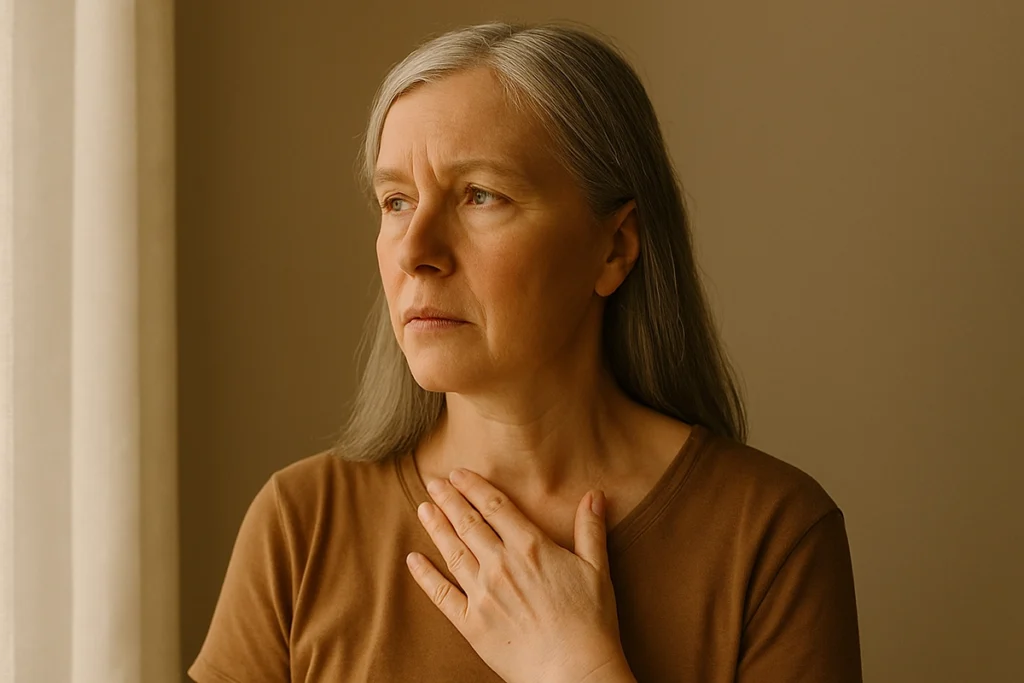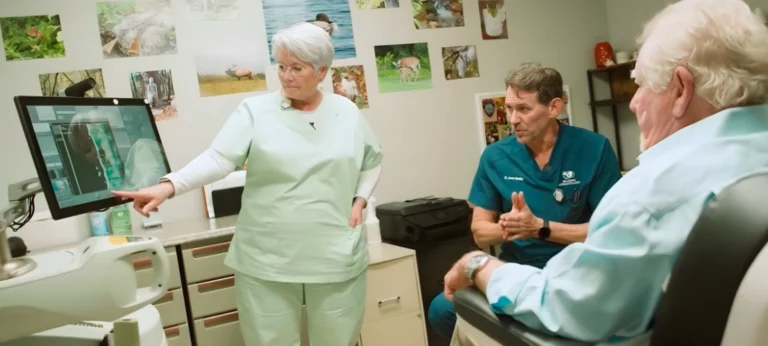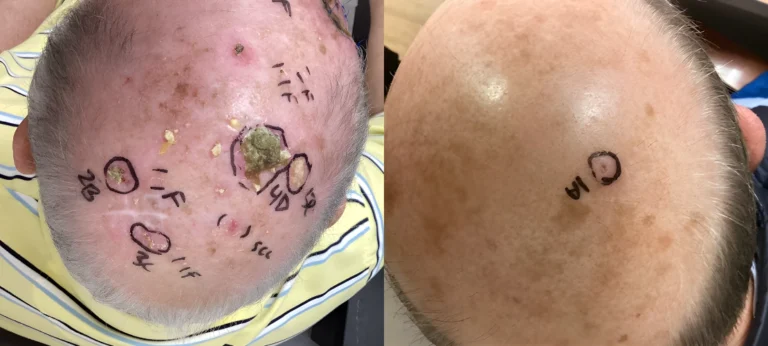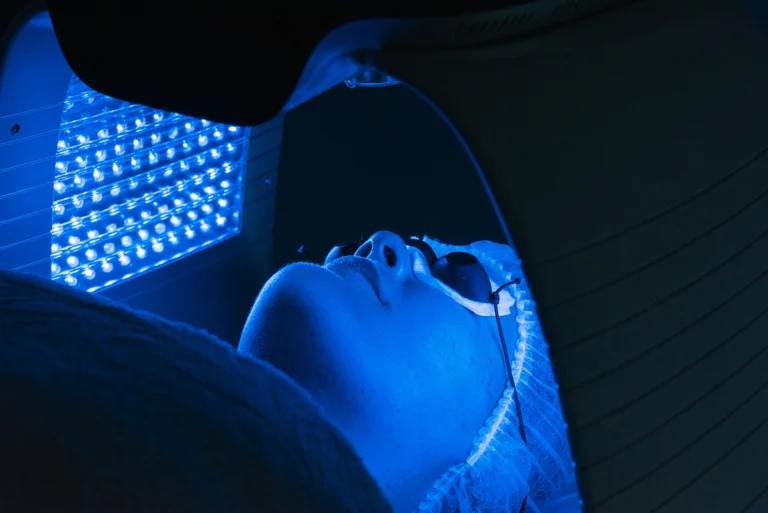Hearing the words skin cancer often brings up an unsettling question: What if it spreads without me knowing? This is a very common fear among patients. The good news is that most types of skin cancer grow slowly and remain local for a long time before causing problems.

Still, understanding how skin cancer behaves—and knowing the early warning signs—can bring peace of mind. In addition, today’s treatments, such as Image-Guided Superficial Radiotherapy (IGSRT), offer effective, non-surgical options to remove skin cancer before it has a chance to spread.
This article explores how skin cancer spreads, the rare instances it may do so silently, misconceptions to avoid, and why early detection truly makes all the difference.
Can Skin Cancer Spread Without You Knowing?
Yes, it is possible—but rare, especially in the most common types of skin cancer.
- Basal cell skin cancer is the most common type. It grows locally and almost never spreads to other organs.
- Squamous cell skin cancer has a slightly higher chance of spreading, often to nearby lymph nodes if left untreated.
- Melanoma is the type most likely to spread silently and quickly, even when it looks small on the surface.
The key message is this: with regular skin checks and early treatment, silent spread is very unlikely.
Basal Cell Skin Cancer Spread: How Often Does It Happen?
Basal cell skin cancer rarely spreads beyond its original site. Instead, it tends to:
- Invade surrounding tissues if ignored.
- Cause cosmetic or functional damage when left untreated.
- Appear as sores that won’t heal or lesions that return after treatment.
While advanced basal cell skin cancer can be destructive locally, it almost never metastasizes. Treating it early prevents deeper damage and avoids complications.
Squamous Cell Skin Cancer Spread: Higher Risk Cases
Squamous cell skin cancer can spread in certain circumstances, particularly when lesions are:
- Large, deep, or fast-growing.
- Located on the lip, ear, or mucous membranes.
- Found in people with weakened immune systems.
When squamous cell skin cancer does spread, it typically affects nearby lymph nodes first. This is why prompt diagnosis and treatment are so important.
Melanoma vs. Nonmelanoma Spread
Not all skin cancers behave the same way.
- Melanoma can spread quickly through the bloodstream or lymphatic system. Even small melanomas can metastasize.
- Nonmelanoma skin cancers (basal cell and squamous cell) usually remain local for much longer, giving more time for treatment.
Knowing the differences helps patients understand their risks and why doctors recommend different approaches to care.
Early Warning Signs of Skin Cancer Spread
Possible signs that a skin cancer has spread include:
- New lumps or bumps near the original cancer site.
- Swelling in lymph nodes close to the affected area.
- Persistent numbness, tingling, or pain.
- Changes in energy levels or unexplained fatigue in rare cases.
These signs are uncommon, but they highlight why keeping up with regular checkups is so critical.
Can Skin Cancer Spread Without Symptoms?
Yes. Some skin cancers do not cause pain or obvious symptoms as they grow. A lesion may be painless, yet still harmful if untreated.
This is why the idea that “if it doesn’t hurt, it must not be serious” is dangerous. Pain is not a reliable indicator of severity.
Misconceptions About Skin Cancer Spread
- “If it doesn’t hurt, it isn’t serious.” Many skin cancers are painless.
- “Basal cell skin cancer never spreads.” While very rare, advanced cases can invade surrounding tissues.
- “Only melanoma is dangerous.” Squamous cell skin cancer can also spread, especially when neglected.
How Doctors Detect Spread Early
If your provider suspects a skin cancer may have spread, they may recommend:
- A full physical exam to check for enlarged lymph nodes.
- Imaging tests like CT, MRI, or PET scans for advanced cases.
- Biopsies of suspicious lesions or lymph nodes.
What Increases the Risk of Skin Cancer Spread?
Certain factors raise the risk:
- Large, untreated lesions.
- Lesions in high-risk areas (lips, ears, genitals).
- Suppressed immune system.
- History of multiple sunburns or prolonged UV exposure.
Treatment Options if Skin Cancer Has Spread
Most skin cancers are treated effectively when detected early. For advanced or high-risk cases, treatment may include:
- Mohs surgery, a precise procedure that removes cancer layer by layer while preserving as much healthy tissue as possible.
- Radiation therapy, including IGSRT, which is non-invasive and highly precise.
- Immunotherapy or targeted medications for rare metastatic cases.
IGSRT in particular allows doctors to treat non-melanoma skin cancers gently, using image guidance to target the cancer while preserving healthy skin. For many patients, this means avoiding surgery altogether.
Living with Skin Cancer: When to Seek Reassurance
Skin cancer can feel overwhelming, even when it’s one of the most treatable types. It’s natural to wonder: Could mine spread without me knowing?
The reassuring truth is that with today’s technology and treatments like IGSRT, most skin cancers are eliminated before they ever have the chance to spread.
Why Early Detection Prevents Silent Spread
- Regular skin exams catch cancers early.
- Treating skin cancer early often allows for simpler, less invasive options and better overall outcomes.
- Monitoring ensures peace of mind for patients and families.
FAQ
It is extremely rare. Most cases remain local.
Faster than basal cell skin cancer, especially in high-risk areas, but usually treatable when detected early.
No. Some grow without pain or obvious signs.
Yes, in rare cases it can grow deeper before becoming visible.
Melanoma, due to its potential for rapid spread.
Image-Guided Superficial Radiation Therapy (IGSRT) can help prevent nonmelanoma skin cancer from spreading by targeting the treatment area precisely for superficial, localized tumors. If the cancer has already spread, IGSRT is not designed to treat distant metastases.
Conclusion
So, can skin cancer spread without you knowing? The answer is that it’s possible—but for most nonmelanoma cases, it’s rare. Basal cell skin cancer almost never spreads, squamous cell skin cancer can in some cases, and melanoma carries the greatest risk.The reassuring truth is that early detection and non-invasive treatments like IGSRT allow patients to stop nonmelanoma skin cancer before it has the chance to progress. At GentleCure, our goal is to provide effective, gentle treatment that not only removes cancer but also protects your skin and your peace of mind.








